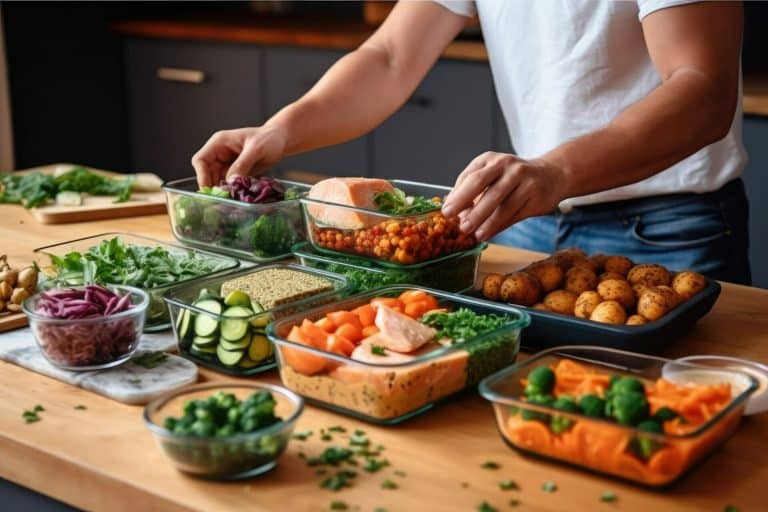Essential Nutrients for Liposuction Recovery
Vitamins and Minerals
After liposuction, the body needs certain nutrients from nuts and beans to heal properly and recover from the removal of stubborn fat cells. Vitamins A and C, along with zinc and iron, are crucial. They speed up the healing process.
Vitamin A helps repair skin tissue. Vitamin C boosts collagen production, essential for wound healing. Zinc plays a key role in cell growth and immune function. Iron helps deliver oxygen to injury sites, facilitating quicker recovery.
Omega-3 Fatty Acids
Omega-3 fatty acids are vital for reducing inflammation after surgery. They help decrease swelling and pain, making the recovery smoother. Sources include fish, walnuts, and flaxseeds.
Incorporating these into your diet can significantly impact how quickly you recover. It’s not just about healing; it’s about doing so efficiently and healthily.
Hydration
Staying hydrated is non-negotiable post-liposuction. Water aids in flushing out toxins and reduces swelling. It also keeps the skin elastic, which is crucial for a good recovery.
Aiming for at least eight glasses of water daily is a good start. This simple step can make a big difference in your healing journey.
Optimal Foods for Healing and Maintenance
Antioxidant Rich
Fruits and vegetables are key for healing. They’re packed with antioxidants. These compounds support the immune system and speed up recovery. Berries, leafy greens, and oranges are great choices. They help combat inflammation and reduce swelling after liposuction.
Eating a variety of these foods ensures your body gets what it needs. Make them a staple in your diet to see the best results.
Balanced Diet
Whole grains and lean meats are essential for maintaining weight post-surgery. Whole grains like quinoa and brown rice provide sustained energy. They prevent spikes in blood sugar that can lead to cravings.
Lean meats, such as chicken and fish, offer high-quality protein. This protein supports muscle repair and growth. Including these in your meals helps keep your metabolism active.
A balanced diet is not just about weight maintenance. It’s also about ensuring your body has the nutrients needed for recovery.
Healthy Fats
Nuts and seeds should not be overlooked. They’re rich in healthy fats and proteins. Almonds, walnuts, and flaxseeds support healing by providing essential fatty acids.
These fats are not only good for recovery but also help with long-term health goals. They can be easily incorporated into meals or eaten as snacks.
Importance of Lean Protein in Recovery
Lean Sources
Lean protein plays a critical role in the post-liposuction recovery process. Chicken, fish, and legumes stand out as optimal choices for their ability to facilitate tissue repair and muscle maintenance. These sources provide the essential amino acids required for the body to heal effectively.
After undergoing liposuction, the body needs all the support it can get to recover smoothly. Lean proteins are fundamental in this aspect because they help rebuild damaged tissues without adding unnecessary fats. Consuming foods like grilled chicken breasts, baked fish, or a variety of beans can significantly enhance the healing process.
Healing Support
Adequate protein intake is non-negotiable for anyone looking to support their body’s healing mechanisms post-surgery. Proteins act as the building blocks of tissue repair and regrowth. They also play a crucial role in maintaining muscle mass that might be at risk due to reduced physical activity during recovery.

Incorporating sufficient amounts of lean protein into your diet ensures that your body has the necessary nutrients to recover efficiently from liposuction. It’s not just about quantity but also quality. Choosing the right types of protein can make a significant difference in how quickly and effectively one recovers.
Fat Consideration
It’s important to steer clear of high-fat protein sources that could undermine the results of liposuction. Foods rich in unhealthy fats might contribute to weight gain or interfere with the desired contours achieved through surgery.
Opting for lean proteins helps maintain a balanced diet while avoiding setbacks in post-operative recovery. By focusing on healthy protein sources, individuals can ensure they’re supporting their bodies without compromising their liposuction outcomes.
Probiotics and Digestive Health Post-Surgery
Gut Health
Following the emphasis on lean proteins, probiotics play a crucial role in post-surgery recovery. They support gut health significantly. Consuming probiotics helps maintain a balanced gut flora. This balance is essential for optimal digestion and nutrient absorption.
Probiotics also reduce the risk of infections by boosting the immune system. They do so by increasing the good bacteria in your digestive tract.
Natural Sources
Yogurt stands out as a top source of natural probiotics. Its creamy texture and variety make it an easy addition to any diet. Kefir, another fermented dairy product, offers similar benefits with a richer probiotic content.
For those preferring non-dairy options, fermented foods like sauerkraut and kimchi are excellent. These foods not only provide probiotics but also add flavor to meals.
Recovery Boost
A healthy gut flora is vital for enhancing recovery post-liposuction. It improves digestion, ensuring your body absorbs all the nutrients from your diet. This process is crucial after surgery when your body needs more nutrients for healing.
Better nutrient absorption supports overall health and speeds up recovery time. Thus, incorporating probiotics into your diet post-surgery is beneficial.
Selecting Easy-to-Digest Foods for Comfort
Soft Choices
After liposuction, your body needs foods that are gentle on the stomach. Oatmeal, soups, and smoothies fit this bill perfectly. They don’t put much strain on your digestive system. This is crucial as your body heals.
Oatmeal serves as a comforting breakfast or snack. It’s rich in fiber which helps with digestion but is still easy to digest. Soups can be packed with nutrients if you include vegetables and lean meats. However, ensure they’re not too spicy or acidic. Smoothies are excellent for adding fruits, vegetables, and even protein powders without irritating the stomach.
Meal Frequency
Eating small, frequent meals throughout the day can also ease digestion post-surgery. This approach keeps your energy levels stable without overloading your digestive system.
Try to plan for five to six smaller meals daily. Each should be light and nutritious. This method helps in managing portions and ensures that you’re not straining your stomach with large meals.
Cautionary Foods
Avoid spicy and acidic foods during recovery. These can irritate the lining of your stomach, causing discomfort.
Foods like hot peppers, tomatoes, and citrus fruits might need to be limited or avoided altogether until your digestive system has fully recovered. Instead, focus on neutral flavors that provide nutrition without causing upset.
Foods to Avoid After Liposuction
Processed Foods
After liposuction, your body needs nutrients to heal. Processed foods lack these essential nutrients. They’re often high in calories but low in value. This mismatch can lead to unwanted weight gain. It’s best to choose whole, unprocessed foods instead.
Eating processed items can also slow down your recovery. They offer little to no benefit for your healing process. Opt for fruits, vegetables, and lean proteins.
High-Sugar Snacks
Sugary snacks and sodas are tempting but harmful post-liposuction. High-sugar diets can cause spikes in your blood sugar levels. This rollercoaster effect is not conducive to healing.
These snacks contribute to weight regain as well. They’re calorie-dense but don’t satisfy hunger for long. Better options include natural sugars found in fruits.
Sodium-Rich Foods
Foods high in sodium can cause water retention and swelling. This is something you want to avoid after liposuction. Swelling can impact your recovery timeline and comfort levels.
Reducing sodium intake helps manage inflammation. Focus on fresh produce and herbs for flavoring instead of salt.
Alcohol and Caffeine
During the initial recovery phase, steer clear of alcohol and caffeine. Both can dehydrate your body when hydration is crucial for healing.
Alcohol consumption can also interfere with medication effectiveness. Caffeine might increase heart rate and blood pressure, complicating the recovery process. Water, herbal teas, and electrolyte-rich drinks are better choices.
Establishing Healthy Eating Habits for Recovery
Meal Planning
After liposuction, meal planning becomes crucial. It’s not just about what foods to avoid, as discussed earlier, but also about ensuring your diet supports recovery and prevents weight gain. By selecting nutrient-dense foods, you can aid your body’s healing process.
Planning meals ahead of time helps meet nutritional needs without the guesswork. It ensures a balanced intake of proteins, vitamins, and minerals essential for recovery. Incorporating a variety of fruits, vegetables, lean proteins, and whole grains is key. This diversity aids in inflammation reduction and boosts energy levels during the recovery phase.
Mindful Eating
Mindful eating is another pillar for maintaining a healthy diet post-liposuction. It involves paying attention to hunger and fullness cues. This practice helps prevent overeating and supports weight management.
Eating slowly and without distractions allows better recognition of when you’re truly hungry or full. It encourages a healthier relationship with food by focusing on quality rather than quantity. Mindful eating can be particularly beneficial after liposuction as it aligns with long-term lifestyle changes rather than short-term diets.
Nutritionist Consultation
Consulting with a nutritionist is highly recommended to tailor a diet plan specific to your recovery needs and goals. A professional can provide personalized advice based on your background and health status.
They ensure that the diet plan supports both recovery and future weight maintenance. This step is critical for those looking to maintain the results of their liposuction long-term. Personalized plans consider individual metabolic rates, activity levels, and dietary preferences.
Accessibility and Dietary Compliance
Long-Term Strategies
For many patients, the key to maintaining dietary changes lies in long-term strategies. Exploring healthy options when dining out becomes crucial. Patients should focus on menus that offer lean proteins, vegetables, and whole grains. This approach allows them to enjoy social outings without compromising their dietary goals.
Finding alternatives that align with post-liposuction nutritional needs can be challenging at first. However, many people discover that a bit of research and planning make it manageable. Websites dedicated to healthy eating can be invaluable resources, offering recipes and tips that cater to various tastes and preferences.
Gradual Changes
Making gradual changes is essential for sustainable eating habits. Patients are encouraged to start small, perhaps by incorporating more vegetables into their meals or choosing water over sugary drinks. These modest adjustments can lead to significant improvements over time.
It’s common for individuals to feel overwhelmed by drastic dietary overhauls. Hence, breaking down the process into manageable steps often leads to better compliance and long-lasting results.
Overcoming Challenges
Dietary compliance comes with its set of challenges. For some, the biggest hurdle is finding the time to prepare healthy meals. Others may struggle with the temptation of old eating habits.
utions like meal delivery services offer a convenient way to access nutritious foods without the hassle of cooking. Support groups provide a platform for sharing experiences and strategies, making the journey less isolating.
Joining online forums or local communities can also motivate patients to stay on track. Sharing progress and setbacks with others who understand the journey can be incredibly empowering.
Final Remarks
Recovering from liposuction requires more than just time; it demands a strategic approach to nutrition that supports healing and maintains the results you’ve worked hard to achieve. By focusing on essential nutrients, lean proteins, probiotics, and easily digestible foods while avoiding those that can hinder your recovery, you’re setting the stage for optimal healing. Remember, the goal isn’t just to recover—it’s to thrive post-surgery with a diet that complements your new physique and promotes overall well-being.
Now’s the time to embrace these dietary guidelines as your roadmap to recovery. Start by integrating these foods into your daily routine, steering clear of harmful choices, and establishing healthy eating habits that will last a lifetime. Your body—and your results—will thank you for it. Ready to take the first step towards a successful recovery? Let’s get started on nourishing your body back to its peak condition.
Frequently Asked Questions
What are the essential nutrients needed for liposuction recovery?
A balanced intake of vitamins, minerals, and antioxidants is crucial. Focus on vitamin C and zinc to support healing.
How can lean protein aid in my recovery after liposuction?
Lean protein facilitates tissue repair and muscle maintenance, making it vital for a swift recovery.
Why are probiotics important after undergoing liposuction?
Probiotics support gut health, enhancing digestion and absorption of nutrients, which is key post-surgery.
What foods should I avoid following my liposuction procedure?
Steer clear of processed foods, sugar-rich snacks, and high-sodium items to prevent inflammation and swelling.
Can you suggest some easy-to-digest foods for post-liposuction comfort?
Opt for soups, yogurts, and smoothies. These are gentle on the stomach while providing necessary nutrients.
How do I establish healthy eating habits during my liposuction recovery?
Start with small, balanced meals. Incorporate a variety of fruits, vegetables, lean proteins, and whole grains gradually.
Is it difficult to maintain dietary compliance after liposuction?
With proper planning and a focus on nutrient-dense foods, maintaining a healthy diet post-liposuction can be manageable and beneficial for your recovery journey.





